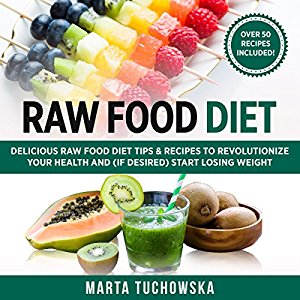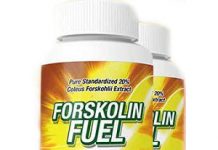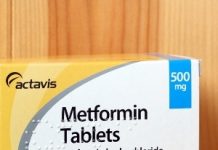Raw foods diets are based on the principle that eating foods that are uncooked or very, very minimally cooked provide more nutrients to your body.
The theory behind eating raw foods is that heat, especially high levels of heat and heating foods for extended periods of time, destroys vitamins, minerals and antioxidants in many foods (especially fruits and vegetables).
A raw foodist avoids heat-processed grains and most animal products (although some consume raw fish, milk and meat); raw foodists eat nuts, seeds, sprouted grains, fruits and vegetables- ones that haven’t been heated past 118°F.
Under severe heat, dietary protein may become resistant to digestion.. When protein-rich foods are cooked, heterocyclic amines form,which were shown to be carcinogenic in vitro mutagen and animals.. In one study, fruits and vegetables were found to be strong factors active in the inhibition of mutagenic pyrolysis products of amino acids in 11 of 59 tested food groups.
In addition to eating a wide variety of raw fruits and vegetables in your meal plan, you can also eat nuts, nut butters, seeds, sprouted grains, legumes, fish, eggs or unpasteurized dairy products.
By incorporating more raw food in your diet, you provide your body with essential enzymes and nutrients it needs to process food, detoxify your system, create energy and perform at its optimum – and at the same time shed excess weight.
Other studies focused on favorable effects of an uncooked vegan diet on fecal microflora and other potential chemopreventive factors for cancer risk (6 , 15 , 18 , 25) One study found overall favorable changes in biochemical and metabolic health indicators including serum protein, urea, and total cholesterol in subjects eating a raw foods diet for one week but concluded observation over a longer period was needed (10) One study found increased risk of dental erosion in subjects following an uncooked vegan diet (7) Another study examined coumarin 7-hydroxylation in subjects consuming a raw foods vegan diet matched with omnivorous controls and concluded that plant substances had little effect on coumarin hydroxylase activity in subjects consuming a raw foods diet (23)
The challenge for anyone on a raw food diet is getting enough protein, vitamin B12 and iron, as these nutrients are typically found in foods most of us prefer to cook – meat, fish, eggs and grains.
While weight loss isn’t the primary goal, you’re also likely to feel full when eating lots of raw foods from consuming plenty of fiber and nutrients, so this can help you curb cravings and eat less overall if that’s one of your goals.
Raw diet vs Vegan diet
Raw diet is often compared to vegan diet. The two have a lot in common, but eating a diet high in raw foods doesn’t necessarily mean you need to avoid all animal products, which vegans do.
Some raw food diets include raw fish, raw dairy products, raw meats or eggs, and even some cooked animal foods too.
Most people know what a vegetarian diet is and what the difference between a vegetarian diet and a vegan diet is. Basically, a vegetarian diet usually means a diet consisting of fruits, vegetables, grains, nuts, and seeds without meat or fish.
Eating more raw food, going vegan, drinking lots of pure water, getting fresh air, sunshine and exercise, changing your mental and emotional habits, are all positive lifestyle changes which have been proven to help people lose weight.
Raw food diets supply more nutrients than vegan diets, because there are some nutrients and proteins you simply cannot get without consuming animal products.
In addition to raw fruits and vegetables, you might consume fish, sea vegetables , fermented foods, sprouted grains , nuts, seeds, eggs, and even some meat and raw dairy products.
Things to keep in mind
- You’ve heard about the benefits that a diet of raw fruits, vegetables, nuts and seeds can have on the body and mind, but how can you go about changing the way you eat and starting your new life on the raw food diet without making mistakes? We hope that this program will be seen by people who’ll then see that it’s normal to feel sick and tired on a raw food diet and it’s not because they do something wrong, but because they would greatly benefit from having generous portions of fish, organic grass-fed and pastured meat, good fats (animal fat, coconut oil, nuts, butter) as well as vegetables (cooked or not) and some fruits.
- Paul and Yulia’s proven raw diet program is likely to set you on a course toward greater energy, a slimmer figure, a radiant complexion, and amazing natural health-whether you aim to lead an all-raw lifestyle or simply want to lose weight while still eating the foods you love. They make raw diet very simple and help you avoid the costly mistakes you might make on your journey to raw diet.
- People who go vegan will initially get a high because of what they take out of the diet – saturated fat, processed or fried foods – and the great surge in vitamins and minerals they’re getting from the increased vegetables and fruit they’re eating.
- Sometimes when people first start eating a raw foods diet they are tempted to add salt, oil and lots of dry spices to their meals because years of eating cooked food has destroyed their taste buds and they feel they need those condiments for their food to taste good.
- Raw food diets are made up of healthy foods and will likely cause weight loss, but they are often too low in calories and a few nutrients.
- There are a good deal of advantages to adhering to a raw food diet: Eating only raw fruit and vegetables, nuts and seeds means that there’s hardly any cooking to do, your complexion will reap the benefits of the vitamins and nutrients you’re consuming, your energy levels will rocket and it’ll lower any bloating from the stomach.
- It is possible to eat more raw foods in a balanced manner by following the next steps: at every meal, plan to fill half of your plate with fresh, non-starchy fruit and veggies; gently cook meals at temperatures less than 100 levels, juice, steam, sprout and use slow cookers to cook the food that you are not eating raw; substitute bad fats with healthy fats; concentrate on having quality animal products in moderation; and replace all of sugary snacks and processed grains.
- Raw foods diets are not for everybody, because raw fruits and vegetables can be tough to digest for many people lacking particular enzymes or digestive capabilities and since they are high-fiber diets.
- A moderate raw food diet supplemented with foods like whole grain bread or other whole grain products and animal products — such as dairy products — MIGHT be possible for healthy adults with adequate knowledge of nutrition.
- To lose weight, you must consume fewer calories than you burn off, which you can do by eating lower-calorie foods, lowering your portion sizes or increasing the amount of physical activity you do. 1 reason a raw diet is really likely to lead to weight loss is because raw foods contain fewer calories than cooked and prepared foods in a common eating program.
- A raw food lifestyle helps getting more oxygen into the system. Most people are starved of oxygen through: 1. not doing proper diaphragmatic breathing, 2. eating cooked food which uses up more oxygen to metabolize, 3. eating animal products which uses up more oxygen to metabolize, 4. not engaging in the benefits of physical exercise on a regular basis, 5. living in houses which are full of stagnant oxygen depleted air, 6. living in cities which are full of stagnant oxygen depleted air.
User reviews
- I have always seem to be a some type of diet through my life time, but reading some positive articles about 100% Raw Vegan diet (which I know very little of) I really want to stop yoyo dieting and start focusing on more than just weight loss but to get my whole body healthy!
- My weight is in a relatively safe range (I mostly appreciate this post because information is a good thing to have, just in case I ever find myself in the situation of being underweight someday in my life), but I notice that my figure is changing a lot as a vegan.
- I recommend, in addition to eating plenty of fruits and veggies, that you include some organic, pasture-raised or grass-fed animal proteins — calf liver and chicken liver, cage-free eggs, grass-fed beef, wild-caught fish, raw/fermented dairy products, and pasture-raised poultry are all great options.
- I realised that I was ingesting the energy from these living fruits and vegetables – that my diet was feeding me energy, not depleting it. After six months my sugar cravings had vanished, the urge for coffee and bread didn’t turn me crazy any more, and after eight months my candida had cleared.’
- I found that changing the ratio between veggies and calorie dense foods just a little was very effective, and it taught me how to structure a meal around density — a habit that has stuck ??
- I don’t believe sticking to one diet is good for us mentally, but I do think if you take what works for you from multiple sources, you will find something that lasts for you for the long run.
- I must admit that completely adapting the principles of Raw Foodism is quite challenging in the first place, and might be very time consuming as well as quite expensive for your pocket but the benefits are well worth it. I get to eat things like Organic Double Chocolate Cherry Cheesecake , Caesar Salad with Hemp Omega Caesar Dressing , Arriba Tortilla Soup , Hummus and Falafel with Tahini sauce, Italian Lasagna (with nut cheese), Flying Dragon Broccoli , Rudolph Cherry Cobbler , and so much more. I don’t just feel more physically energetic and require noticeably less sleep than before; I’ve also found a new enthusiasm for running, work, and setting goals (I’ve got my eye on another 100-miler in March). I experimented with goji berries, coconut, chilli and sesame seeds in my selection and my new found knowledge of how simple my fave sweet snack can be, combining just a handful of totally natural ingredients, was better than any artificial sugar hit.
- It’s easy to focus on the recipes, the nutrition primer that makes up the first one-quarter of the book is perfect — I learned a lot and am I glad I took the time to read every word of it. Gena is not afraid to challenge accepted dogma or admit shortcomings in the plant-based diet that many vegans and raw foodists won’t — like the difficulty of getting EPA and DHA fatty acids, the need to supplement with vitamin B12, and the flawed reasoning in some pretty central tenets of raw foodism (like the enzyme-denaturing bit and the idea that fruit ferment” in our stomachs if incorrectly combined with other foods).
- Now that I’ve felt that energy — a boost far beyond how I normally feel, even on a pretty healthy vegan diet — I don’t want to lose it. What’s more, the extreme restrictiveness of 80/10/10 (raw fruit and leafy vegetables and very little else, not even many nuts and seeds) has recalibrated my taste buds and my sense of willpower around the food choices I make.







